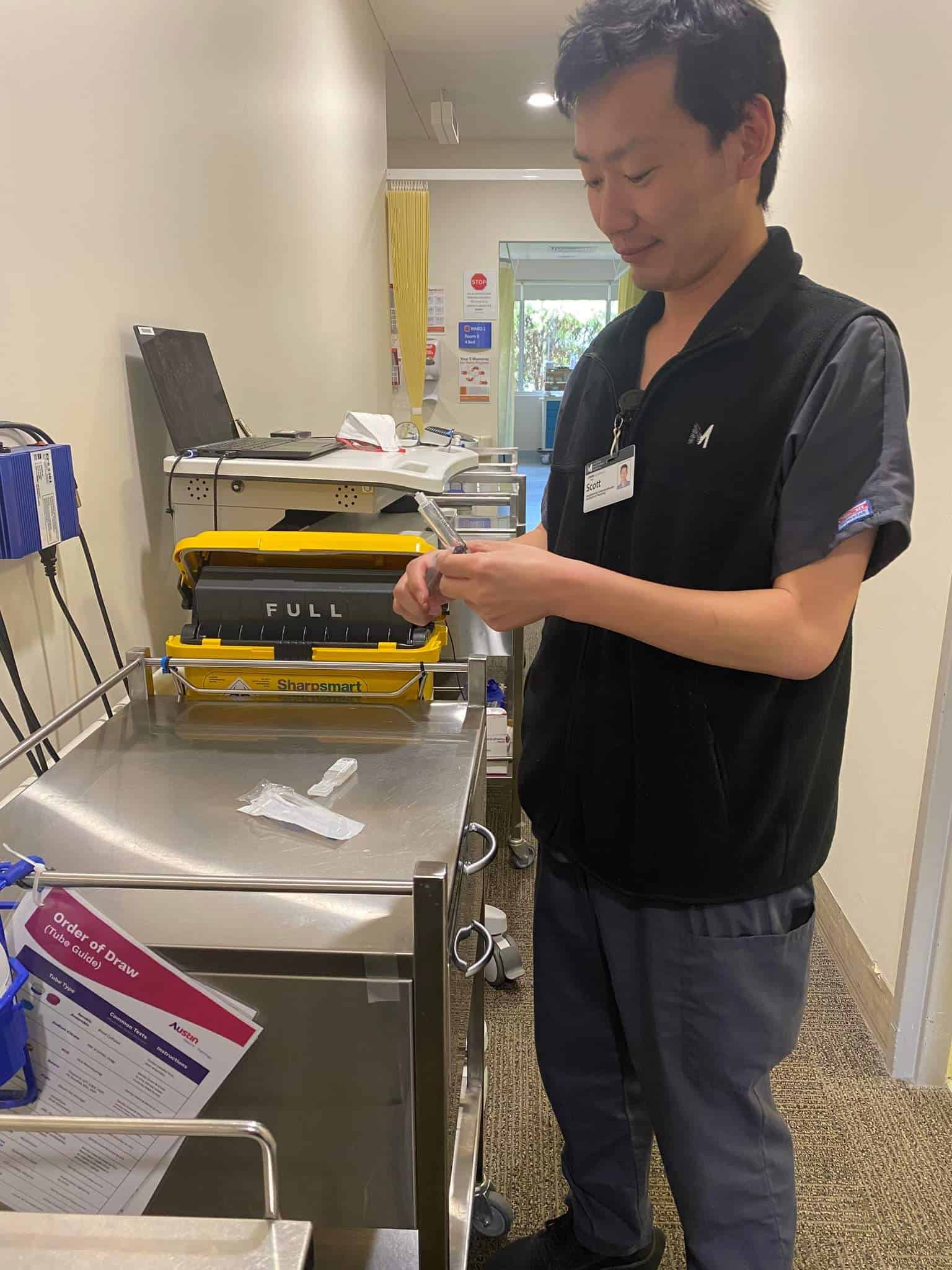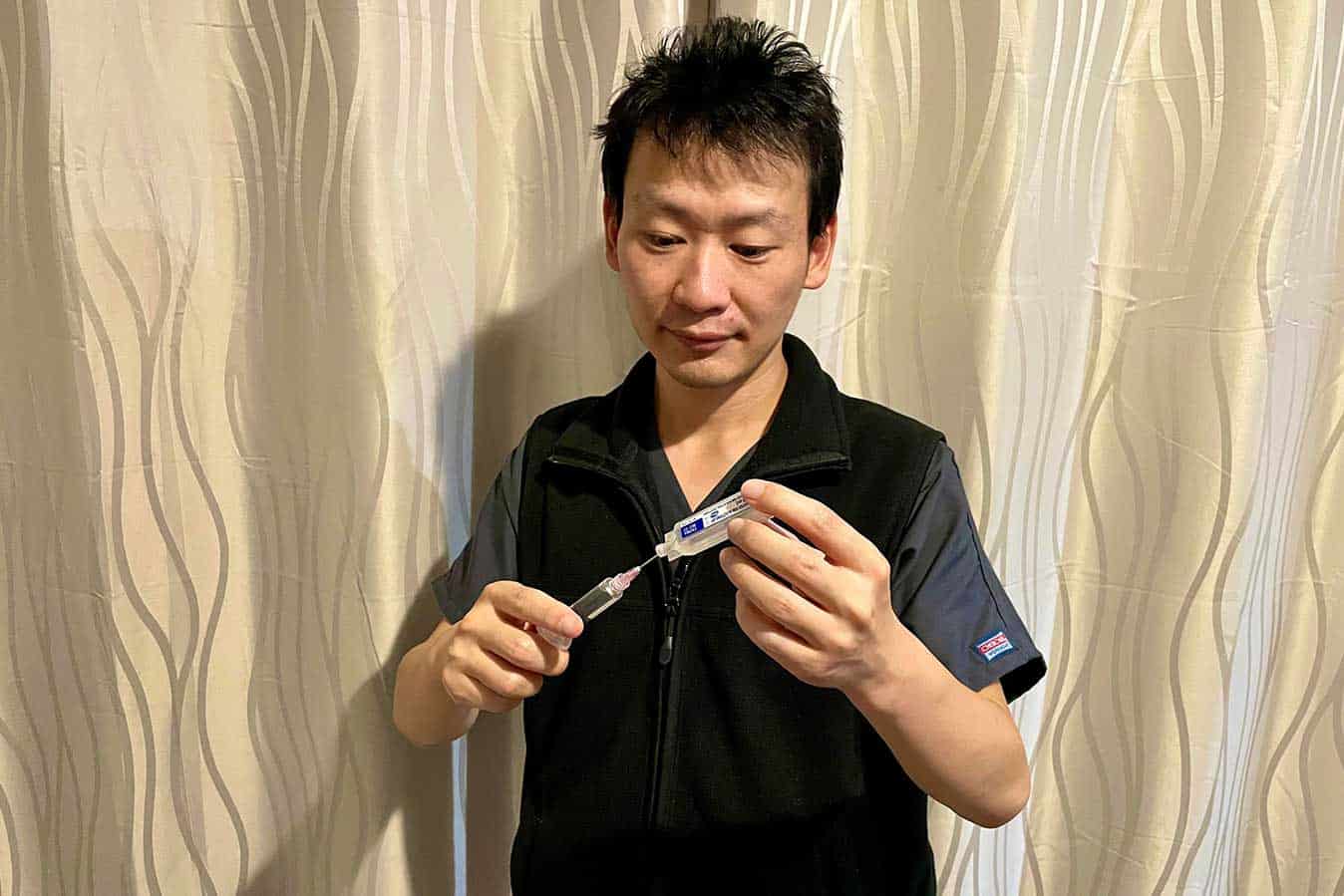When second-year nursing student Scott Li isn’t studying he’s more than likely working shifts at Mildura Base Hospital, helping to ease the load and gaining invaluable on-the-job experience before he graduates.
The La Trobe University student is one of many Registered Undergraduate Students of Nursing (RUSONs) working across the state’s public hospitals and health services. Under the paid workforce model, initiated by the ANMF (Victorian Branch), students work under the direct supervision of registered nurses to help provide patient care, typically carrying out tasks such as patient showering and dressing, feeding, manual handling and mobility.
Scott, who is originally from China, moved to Australia in 2021 and chose to pursue nursing because he wanted to contribute to healthcare amid the COVID-19 pandemic, and knew the profession was facing looming shortages that meant jobs would be available.
The 32-year-old mature age student jumped at the chance to become a RUSON in the hope of fast-tracking his nursing journey. Since January, he has clocked on for three to five shifts per week on the hospital’s surgical ward.
“Mainly, I just assist every nurse, but usually it’s the ones that have very confused or challenging patients such as those who have dementia or have undergone a big surgery and cannot move at all,” Scott says.
“I help the nurses to roll them over in bed, give them a wash in bed, and help them to go to the toilet. When it’s busy, I’ll take patients’ blood pressure and basic vital signs and even help them with feeding, eating breakfast and lunch, pretty much the basic stuff.”
Scott believes the RUSON program has helped him develop skills, improve time management, and become more prepared for when he becomes a registered nurse.
“I think the program really gives you hands-on experience,” says Scott.
“It’s showed me that hospital environment, because eventually that’s where most of us will end up working, and also u get so much exposure to what you’re going to do in the future.

“As a RUSON we can take blood sugar and blood pressure, things we just don’t do so much of in school, so if we can get some experience in the job, I think that is really beneficial to us after our graduation.”
Being thrust into the profession amid the COVID-19 pandemic has not been without its challenges, yet, Scott suggests he has managed to cope well with the added complexities.
“There’s just more pressure,” he says.
“It’s also very uncomfortable because you’re wearing a thick mask for eight hours or longer and running around with confused dementia patients that can’t see your face and can’t see your facial expressions and can’t hear you if they have hearing loss. During COVID, we had to put on a gown before we walked into the room. Putting them on and taking them off is very time consuming and extremely uncomfortable but I think it has also offered me an insight into how to manage all this if the next one [wave] comes along so I’m sure I’ll be better prepared.”
Earlier this year, the Andrews Labor Government, as part of its 2022/23 Budget, committed a further $59 million to 2,250 RUSON positions over two years, and $9.8 million to support 75 registered undergraduate student midwives (RUSOMs) per year.
Since the program was launched in 2016, the RUSON/M student employment model has seen more than 3,000 students work across the state’s hospitals.
Scott, who plans to apply for a graduate position at the Mildura Base Hospital once he completes his studies, says the program has made him more confident as he works towards entering the profession.
His advice to nursing students considering applying to become a RUSON is to do their homework, and give it a go.
“You need to be prepared because once you’re here [the hospital] yes you’re a student, but most of the time you’re also an employee,” he says.
“You will encounter a lot of challenges but just be open-minded about it. Don’t be frustrated. because sometimes it can be hard and it can be very challenging. You have patients yelling at you, confused patients even becoming aggressive towards you. So just keep in mind, that is only part of the job and if you’re determined to become a nurse this is what’s going to happen to you at some point in the future. Be open minded about this and see it as an opportunity to gain experience.”








